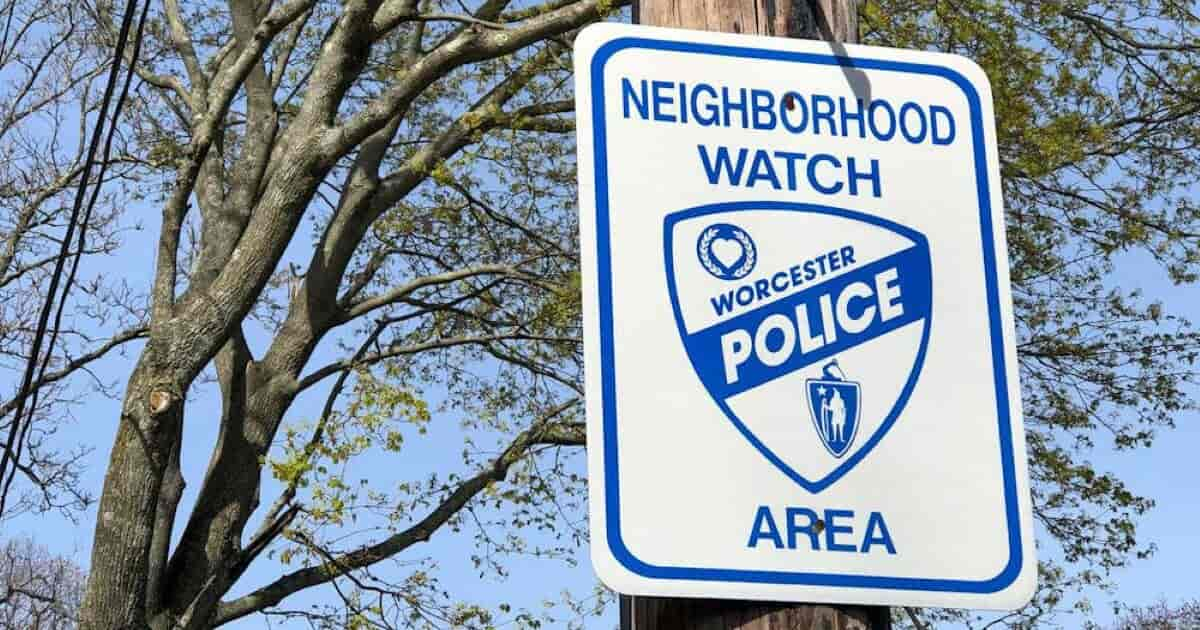Mass. – A sexual assault survivor found herself in a Massachusetts courtroom this week, again facing the man convicted of four counts of rape of a child when she was 14 years old, more than 20 years ago. The two-decades long saga highlights how multiple government systems in Massachusetts consistently fail to protect survivors and inflicts another round of trauma upon them.
This Week in Worcester featured Lynn Kee in a story in April. She is one of two women seeking changes to Massachusetts law on the statute of limitations for reporting rape. She was in Worcester District Court seeking a harassment prevention order against her assailant of over 20 years ago in May, which was denied. She was back in court on Thursday to see that same man arraigned on new criminal charges the state would have never discovered without her.
Conviction for Rape of a Child
Jeffrey Belmore was an Ashland firefighter, where Kee’s father, Bill, was chief of the department for nearly 20 years. Over time, Belmore, also a musician, became a family friend.
Lynn developed a growing interest in music as an early teen. Bill sought to nurture his daughter’s interest and asked Belmore if he would teach her guitar. Belmore agreed.

She didn’t see at 14 years old what she now knows was happening in the first six months of those guitar lessons: grooming. According to reporting at the time, the sexual intercourse began in November 2000 and occurred through the summer of 2001, when Kee reported the incidents to a Christian camp counselor. Belmore is ten years older than Kee.
A grand jury approved the indictment of Belmore in March 2002. The Charlton Fire Department hired Belmore in 2003 and continued to employ him through the trial.
The first criminal trial ended with the jury unable to reach a unanimous decision. Post-trial jury polling revealed a single juror refused to convict. After a second trial in 2006, that jury found Belmore guilty of four counts of rape of a child. He resigned from the Charlton Fire Department after his conviction.
The penalty for rape of a child in Massachusetts’ General Law Chapter 265 Section 23 (M.G.L. Ch. 265 § 23) states:
Whoever unlawfully has sexual intercourse or unnatural sexual intercourse, and abuses a child under 16 years of age, shall be punished by imprisonment in the state prison for life or for any term of years or, except as otherwise provided, for any term in a jail or house of correction. A prosecution commenced under this section shall neither be continued without a finding nor placed on file.
Despite facing up to life in prison by statute, case law at the time led the judge to sentence Belmore on Oct. 31, 2006 to three to four years of incarceration and an additional five years of probation.
Today, the charge would be rape and abuse of a child aggravated by age difference, codified in M.G.L Ch. 265 §23A, known as “Jessica’s Law.” That crime carries a minimum sentence of 10 years in prison.
The Disposable Rights of Victims

Mass General Law provides for Rights of Victims and Witnesses of Crimes, often referred to as the Victim’s Bill of Rights, M.G.L. 258A § 3 lists several rights of victims, witnesses, and their family members. One of those rights, listed under §3(s), provides “for victims, to be informed by the parole board of information regarding the defendant’s parole eligibility and status in the criminal justice system.”
Kee says that she registered to opt-in for the notifications system after Belmore’s conviction. Victims are permitted to speak to the parole board during its review process. When the Massachusetts Parole Board reviewed Belmore’s case in 2009, she received no notification. Belmore was released from prison in October 2009, classified as a level two, or moderate risk, sex offender. When Kee inquired about his parole status, as she had not received any notification, Belmore’s parole had already been approved and he was awaiting release.
Kee was told she was not notified because she wasn’t in the system. No one can tell her why she was removed, when she was removed, or who removed her from the system.
For the second time, she registered for the notification system.
The Massachusetts Parole Board reviews cases of inmates for consideration for early, conditional release. Parole Board life sentencing decisions, cases where the inmate was sentenced to life, are public. Records in all other cases are released only to the individual under review, or their attorney if authorized by the individual.
Sex offenders in Massachusetts are required to register where they live, work, and go to school within the state. Level three sex offenders are publicly available on the Sex Offender Registry Board website. A change in law makes level two sex offenders publicly available on the website if their classification took place after July 12, 2013.
In early 2023, Belmore was reduced from a level two sex offender to level one. Again, Kee received no notification. Again, she was told that after registering twice, she wasn’t in the system. More than a decade later, still no one can tell her why she was removed, when she was removed, or who removed her from the system.
No Skin in the Game
In April 2022, Kee went to Maundy Thursday service, the day before Good Friday, at what was long her family’s church. She hadn’t been to the church since before the pandemic. She found Belmore was one of the musicians in the church’s praise band.
The camp Kee was attending when she first reported Belmore’s abuse was through the same church. Kee says that camp personnel testified during Belmore’s criminal trial.
She was infuriated. “If I had walked into a random church and he was there, that would be one thing. He knows that is our church.”
Kee chose not to flee, believing there was a lifetime harassment prevention order in place. “The obligation to move away was his, not mine,” she said. “I was not going to run from my own church.”
She says Belmore did not move away and was within five feet of her for several minutes in the communion line. Kee says she left the church at the end of service.
After considering the situation overnight, she called the Hopkinton Police Department to report the encounter. An officer took a report and said he would investigate.
Months later, after hearing nothing from the officer, she called and learned that no report was on file and the officer was no longer with the department. The department then directed her to a detective.
After she explained what happened, the detective told Kee that he “had no skin in the game” but if she “comes up with something else” that she should call back.
“I took that to mean that he wasn’t sure a crime had been committed, but I was still confused,” said Kee. “Why was it up to me to investigate?
Kee met with church officials in August 2022 and found them deeply concerned about the situation. Church officials suspended Belmore from the worship team, pending an investigation. They investigated and then compiled a written report at Kee’s request, which was finalized in January 2023. Citing privacy reasons, the church released the report only to police.
During this time, Kee also contacted the Massachusetts Sex Offender Registry Board (SORB).
Defining Lifetime
In cases involving sex crimes, courts often issue a lifetime harassment prevention order. Kee believed that when Belmore did not move away from her in the church in 2022, a violation of that order occurred. Massachusetts Law defines these lifetime orders as applied to the lifetime of the case. In 2014, five years after Belmore was released from incarceration when probation expired, the harassment prevention order expired with it.
In cases of domestic violence in Massachusetts, a victim may seek a permanent abuse prevention order. A judge may issue permanent harassment prevention orders. Both are rare.
Kee also learned from SORB that Belmore was no longer a level two sex offender. While the official Massachusetts state website has a detailed section on how sex offenders receive initial classification, including “final classification,” it makes no mention of the process of reclassification. Those details are contained in a downloadable .pdf of the Department of Criminal Justice regulations. A registered sex offender may apply every three years for reclassification. A level one sex offender, which Belmore is now classified, may apply to have the sex offender designation removed entirely every three years.
In 2018, the Massachusetts Supreme Judicial Court (SJC) affirmed a Suffolk Superior Court ruling which shifts the burden of proof onto SORB in reclassification decisions. Prior to this ruling, the sex offender was required to demonstrate that they were no longer an ongoing threat. The SJC ruling now requires the SORB to demonstrate the offender remains a threat.
New Harassment Order Denied
On May 16, Kee was in a Worcester County Court seeking a new harassment order against Belmore. The attorney representing Belmore, Kevin Quinlan, issued a written brief citing a 2014 case, Mussman v. Piczakara. In that case, a woman sought a harassment order against her brother based on alleged sexual assault from 40 years prior. There was never a criminal prosecution in that case.
The judge denied Kee’s request for a new order. She plans to appeal the decision.
That same brief also revealed that Belmore was employed as a member of the worship team at the church where Kee saw him. After the hearing, Kee contacted Hopkinton Police for the first time since they met with the church and compiled a report.
The detective who wrote the report, like the officer she spoke with in 2022, was not available. She was assigned another detective.
According to Kee, that detective took much more interest in the case than the two she spoke with previously. When she informed him about what took place in court and the content within the legal brief presented by Belmore’s attorney, the detective said he would investigate. That was corroborated by the written report the church turned over to police earlier this year.
On June 1, Belmore was arraigned in a Middlesex County Court for a count of failure to register as a sex offender. The charges indicates Belmore never registered the church as a place of employment, as required by law.
At the request of the prosecutor in the case, the judge issued an order that prohibits avoidable contact between Kee and Belmore.
Kee says she’s pleased the judge issued the order, but is deeply concerned about the systemic problems she’s experienced over the last year. She described the situation as:
“In Massachusetts, plenty of protections exist for offenders, but there are surprisingly few protections for survivors. We can’t guarantee we’ll be notified when they petition for a reduction in their leveling, have to fight for a harassment prevention order we may not be granted if we want protection from contact with them, and are apparently required to conduct our own investigations when we discover they’re not registering properly,” said Kee. “And at that, why is it left to the public to discover these violations in the first place? If SORB isn’t doing something as simple as checking offender’s registration against their income to verify they’ve registered all places of employment, it would seem that the public isn’t being afforded the protections they are promised, either.
“It’s clear to see that the system of protections we currently have in place is broken,” said Kee. “Even the people on the inside want to see that change. I intend to do everything in my power to make the public aware and put the pressure on from the outside.”
Lead Image Credit:Hsin Ju HSU, Massachusetts Statehouse, CC BY-SA 3.0









